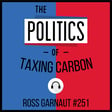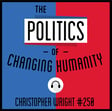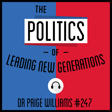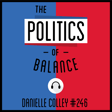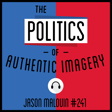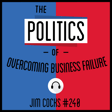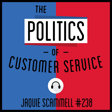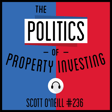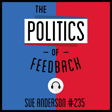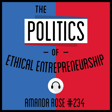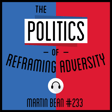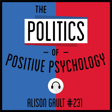
249: The Politics of Domestic Violence - Felicia Zsha' Mirzze
I met today's guest at the 2024 Stevie’s Asia Pacific Awards event in Manila, and as fellow Australian business owners we connected instantly.
Domestic violence is more than a domestic issue – it’s a well-known national problem in Australia that seems to be a permanent stain on our communities. Recent ABS statistics indicating 41% of Australians have been affected by violence of some kind since the age of 15 and 1 in 4 women and 1 in 14 men have experienced sexual or physical violence at the hands of an intimate partner. As CEO of The Trauma Recovery Network, Felicia Zsha’ Mirzze is an international speaker, advocate, and therapist with a Social Science background with a specialised focus on trauma. Felicia brings a blend of lived experience with a robust academic foundation. Holding a degree in Social Science and Counselling, Felicia is equipped with a wealth of knowledge that extends beyond traditional boundaries. Her academic background includes multiple diplomas spanning Journalism, Legal Services, Community Services, Counselling, and Communication, reflecting a diverse skill set that enriches her perspectives on mental health and well-being. Felicia has presented at the Inaugural Asia-Pacific Conference on Women's Mental Health, The World Conference on Gender and Women's Studies and the Stop Domestic Violence Conference.
This is a huge (adult) topic and given its nature won’t be suitable for all listeners.
Hear from Felicia on:
1. Domestic violence is certainly a national crisis in Australia but it feels like we say that every year. Can you share your perspective on why this seems like an epidemic in our society?
2. What impact does DV based on what you have seen in your own practice?
3. Your work includes advocating for the rights of women with a conviction history. How has this become a focus for you, and I imagine DV is many times a part of these women’s stories?
4. What role do governments play in solving DV – can’t be about money for new programs alone alone right?
5. How can we break cycles of DV in families from your professional view?
Connect further:
(3) Felitciana (Felicia) Zsha Mirzze | LinkedIn
www.traumarecoverynetwork.com.au
POE listener offer: Zencastr is my podcast platform of choice. Use my special link (zen.ai/thepoliticsofeverything30 [http://zen.ai/thepoliticsofeverything30]) and use code "THEPOLITICSOFEVERYTHING" to save 30% off your first three months of Zencastr professional. #madeonzencastr
